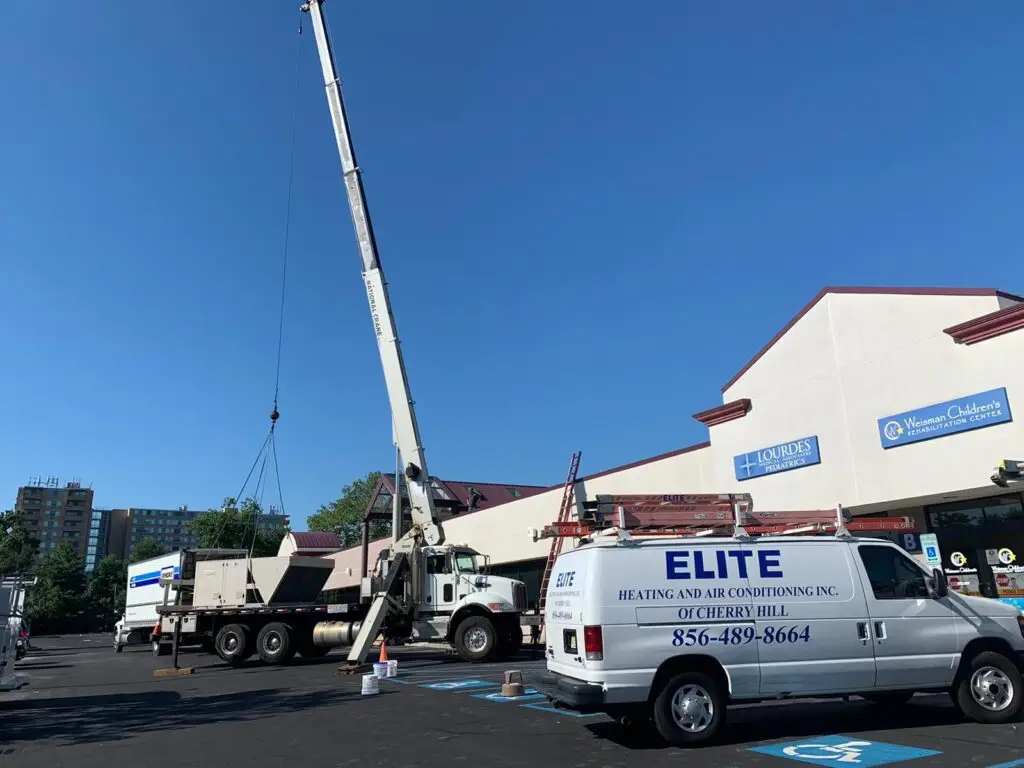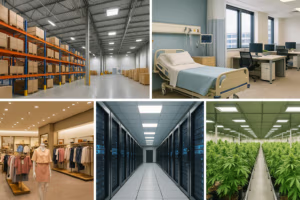HVAC and Productivity: How to Boost Workers in Your Building
Tenants in commercial space often employ dozens and dozens of employees working in a large space. For those tenants, productivity is important.
In today’s fast-paced business world, productivity is paramount.
Does HVAC affect productivity?
Absolutely. Definitely. You bet, it does!
The quality of your indoor air and the temperature of your workspace can significantly impact productivity.
The Science Behind HVAC and Productivity
The link between the climate of the workplace and the productivity of the workers inhabiting it has been proven. Recent studies show that indoor air quality and temperature have dramatic impact on cognitive function and productivity. A study led by the Harvard T.H. Chan School of Public Health found that poor indoor air quality, characterized by increased concentrations of fine particulate matter (PM2.5) and lower ventilation rates, was associated with slower response times and reduced accuracy on a series of cognitive tests.
Another study found that productivity peaks when the temperature is between 70°F and 77°F. Productivity decreases when the temperature falls below 62°F or rises above 86°F. [10], although that’s no surprise. Most people don’t work well when they’re too cold or too hot! In fact, for every degree above 77, the temperature rises, employees experience a 2% decline in productivity.
Commercial HVAC systems must maintain optimal settings to keep their tenants happy and the tenants’ workers happy and productive.
How HVAC Affects Productivity
Does it seem like the employees in your building are slacking?
It may be because the HVAC system is underperforming. Poor indoor air quality and improper temperature settings happen when an air conditioner or heater is not operating efficiently. It might have dirty filters. It may be low on refrigerant. Maybe there’s a loose part or a worn wire that decreases its efficiency.
Equipment that is not operating at maximum efficiency leads to an uncomfortable work environment, causing employees to lose focus and become less productive.
On the other hand, a well-maintained HVAC system that provides clean air and maintains an optimal temperature can enhance employee comfort, leading to improved focus and increased productivity. (Have you had your system checked by Elite Heating and Air Conditioning within the last year?)
How to Make HVAC Positively Affect Productivity
Any building owner or property manager can take steps to help their HVAC positively affect productivity.
Regular Maintenance:
Regular maintenance of your HVAC system is crucial. This includes changing air filters, inspecting and cleaning ducts, and checking for any potential issues that may affect the system’s performance.
Elite Heating and Air Conditioning of South Jersey offers Customized Commercial Care, maintenance plans designed specifically for your property. We take into account the size, layout, and purpose of your building. Then we custom design a plan that’s right for you. No two buildings are exactly alike, and maintenance plans shouldn’t be, either!
Invest in Energy-Efficient Equipment:
Upgrading to energy-efficient HVAC equipment can significantly reduce energy consumption and operating costs]. High-efficiency systems are designed to maintain optimal performance while using less energy.
Systems can be retrofitted, decreasing the need for a complete, new installation.
Utilize Programmable Thermostats:
Programmable thermostats allow you to set specific temperature schedules based on occupancy and usage patterns. If no one is going to be in the building in the middle of the night, for instance, you can decrease the temperature and save money on utility bills.
Avoiding unnecessary heating or cooling when the space is unoccupied, leads to energy savings and improved efficiency without affecting workers’ comfort or productivity.
Implement Zone Control Systems:
For larger commercial spaces, implementing zone control systems can help to optimize heating and cooling based on specific areas or usage patterns. If one area is set aside for the night watch, for example, then that area can be heated and cooled only during evening hours, saving cost without sacrificing comfort. This allows for better temperature control and energy savings in different zones of the building.
Monitor and Analyze Energy Usage with Building Automation:
Implementing Building Automation Systems can provide valuable insights into HVAC usage patterns and help identify areas for improvement. By analyzing energy data, you can make informed decisions about optimizing HVAC efficiency and reducing operational costs.
Building Automation Systems can even draw in weather predictions and adjust your building’s settings appropriately, saving you from the danger of frozen pipes and keeping your employees warm even in sub-zero weather by turning up the temperature before they arrive at work!
Educate Building Occupants:
Educating employees and building occupants about energy-saving practices and the importance of efficient HVAC operation can contribute to a collective effort to maximize efficiency.
Encourage simple habits such as turning off lights and equipment when not in use and maintaining consistent temperature settings between 70 and 77 for optimal productivity.
HVAC and Productivity
Maintaining optimal HVAC settings is not just about energy efficiency; it’s about creating a comfortable and productive work environment. By understanding the link between HVAC and productivity and implementing the tips mentioned above, businesses can enhance employee productivity and create a healthier work environment.
Elite Heating and Air Conditioning can help you! Call us.
“No Excuses. Just Results.”

- commercial hvac, HVAC and Productivity, Worker Productivity


